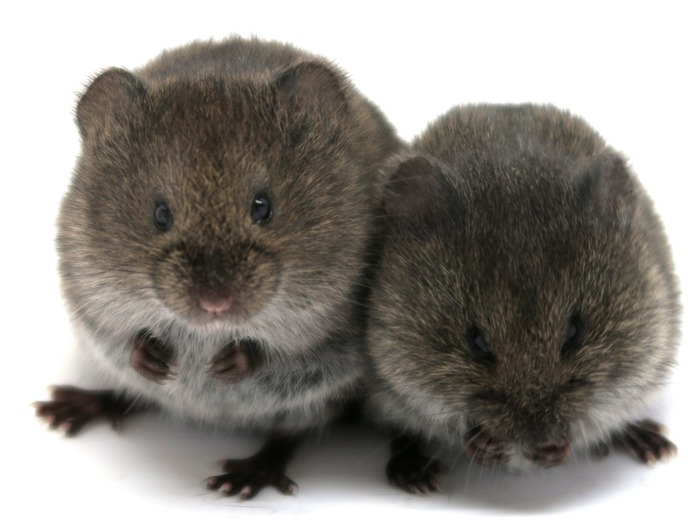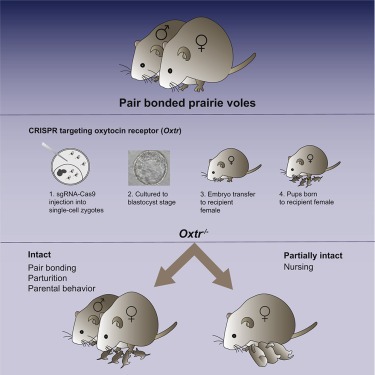Published on
Updated
Reading 3 mins.
According to a new study, prairie voles lacking oxytocin receptors turn out to be just as affectionate and loving as their mates. What to call into question the properties of the hormone of love?
Also called the “love hormone”, oxytocin has long been associated with the marital and social bond but also with the mother-child bond. A new study conducted with voles, however, shows that this hormone is not necessarily necessary for the beginnings of a romantic relationship or quite simply for the development of social behavior. Explanations.
Mutant rodents quickly attached to their partner
To test this theory, the researchers examined the role of oxytocin in prairie voles. A choice that is not due to chance, since these rodents are known to be monogamous: they usually choose a single partner. As a couple, they share parenting responsibilities, prefer their partner’s company to unfamiliar members of the opposite sex, and actively reject potential new partners.

The scientists then used a gene-editing technology called CRISPR (Clustered Regularly Interspaced Short Palindomic Repeats) to precisely manipulate the voles’ DNA.
Specifically, they sought to determine whether mutant voles (without oxytocin receptors) exhibited attachment disorders. To do this, they placed them with other “normal” males and females for 7 days. They also observed the ability of rodents to care for newborn voles.
Result ? Voles without oxytocin receptors exposed to non-mutant rodents turned out to be more affectionate than ever: they spent far more time snuggling up to their partners. The latter also rejected the other potential partners – indicating an already well-established emotional attachment for the “chosen” rodent. Finally, the mutant voles seemed to care for their offspring just as well as the non-mutant parents.
“Voles demonstrated a very strong social attachment with their sexual partner, as strong as normal counterparts“, confirms the lead author of the study, Dr. Devanand Manoli, co-author of the study.
The only difference observed? Mutant prairie voles had limited milk release compared to normal voles. As a result, fewer of their young survived to weaning age, and those that survived were smaller than the young of normal prairie voles. According to the researchers, this result could be explained by a breastfeeding problem or a “mild impairment in breastfeeding behavior”.

Results that challenge 40 years of research
For 40 years, oxytocin has been described as an essential pathway for the development of social behaviors. Previous research has also shown that drugs that block oxytocin pathways lead to attachment problems. How then can these results be explained? For the author of this research, relying on mutant animals is more precise than resorting to drugs: “drugs can be “dirty in the sense that they can bind to multiple receptors, and you don’t know which binding action is causing the effect. From a genetic perspective, we now know that the precision of suppressing this unique receptor, then elimination of its signaling pathways, does not interfere with these behaviors” judge the neuroscientist Devanand Manoli.
He even continues:For at least the past decade, people have hoped that oxytocin would be a powerful therapeutic agent to help people with social cognitive impairment due to conditions ranging from autism to schizophrenia. This research shows that there is probably no magic formula for something as complex and nuanced as social behavior.”
Should we therefore abandon the trail of oxytocin?
Not necessarily according to Dr. Young, director of the Center on Oxytocin and Social Cognition “Silvio O.Conte”, thinks that rodents without oxytocin receptors show “paired link circuits“which remain functional.”The animal may use other processes to facilitate social interactions and bonds, but in a complex situation, it may not be as “strong” as the others“, he concludes.
Furthermore, if these tests appear conclusive in the laboratory, they could differ in nature: “Tiny differences could make mutant voles socially awkward and possibly unable to bond“.
